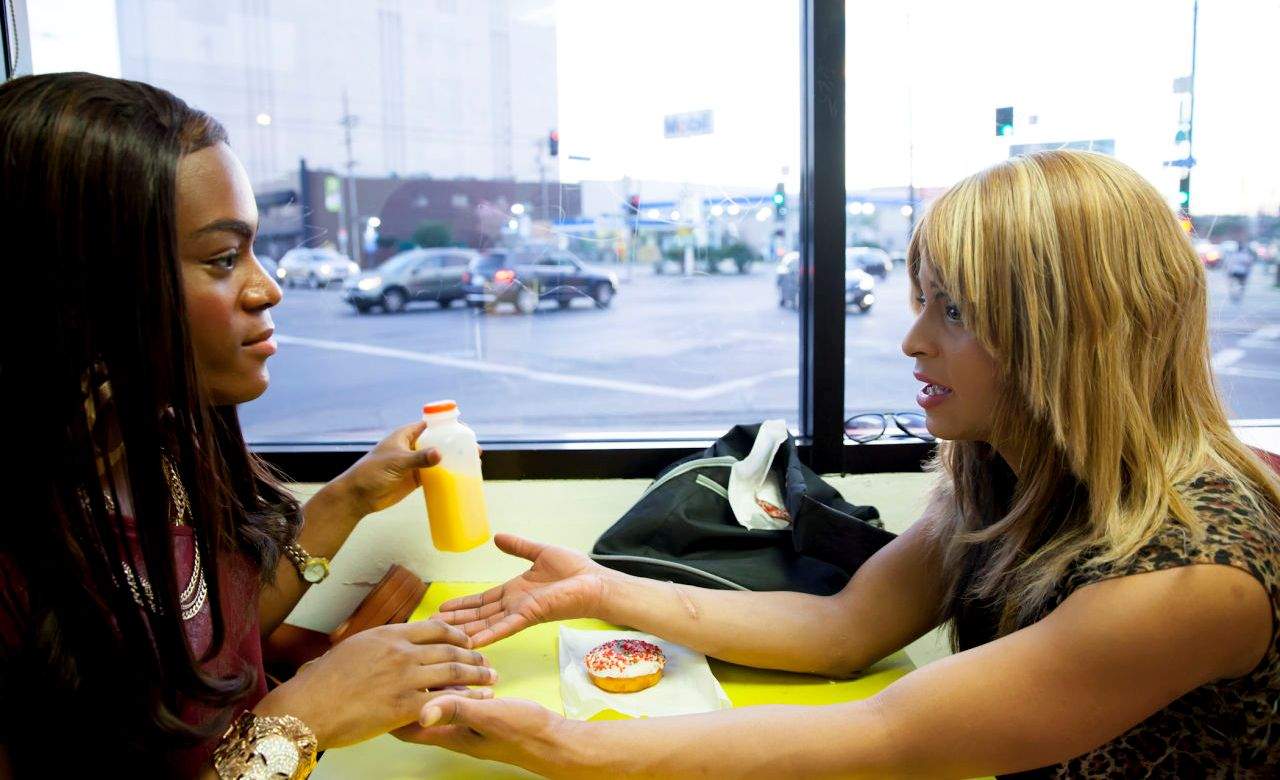Tangerine
See the transgender comedy shot on an iPhone that took Sundance by storm.
Overview
When we first meet Sin-Dee Rella (Kitana Kiki Rodriguez) and her best friend Alexandra (Mya Taylor), it's over a doughnut in a dingy shop on the corner of Santa Monica and Highland, a notorious Los Angeles intersection known for its high numbers of transgender sex workers. Sin-Dee is back on the block after a month-long stint in prison, although she won't be getting back to the hustle right away. First, she's got to track down her pimp and boyfriend Chester (James Ransone), who according to Alexandra has been stepping out behind her back — and with a biological woman, no less.
At first description, Sundance hit Tangerine sounds like it could be a bit of a slog to sit through — a micro-budget indie film about people on the fringe of society with no good options and no way out. Thankfully, that could not be further from the truth. What on paper has the makings of a despondent 'issues' movie is instead a loud, stylish, ultra high-energy romp — a film that is both uproariously funny and unexpectedly poignant without ever resorting to cheap tricks, condescension or cliche.
Of course the first thing that makes Tangerine stand out is not its subject matter but its style. Director Sean Baker shot the entire film using tricked-out iPhone 5s, a cost-saving measure that proved to be a blessing in disguise. The jerky, unvarnished camerawork suits the film's characters to perfection, while filters added in post-production ramp up the colours to unnaturally vivid level; rarely has LA's ugly side looked so electric on screen. On a technical level alone, this is a truly exciting piece of art, one that raises the bar for low- and no-budget productions while at the same time demonstrating how technology is democratising moviemaking like never before.
Still, even more so than its incredible aesthetic, the true success of Tangerine lies in the collaboration between Baker and his two leads. Despite a combined zero hours of screen acting experience between them, Taylor and Rodriguez, who Baker recruited from a local LGBT centre, give two of the best performances of the year. It's hard to imagine 'professional' actors bringing the same levels of authenticity – or attitude – to the film's immensely quotable dialogue, much of which was improvised on set.
Indeed, the unvarnished, no-fucks-given edge that both stars bring to the film speaks volumes about the hardships faced by poor transwomen of colour. Tangerine, to its eternal credit, never shies away from these hardships. But it also refuses to paint its characters as helpless victims. These women don't want or need your sympathy, although they certainly deserve your respect. So too does this film. As transgender issues continue to get more of the spotlight, narratives such as this – unflinching and, perhaps more importantly, entertaining – have the power to alter public perception. Frankly, it's hard not to root for characters like these.





